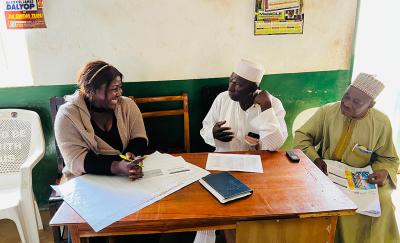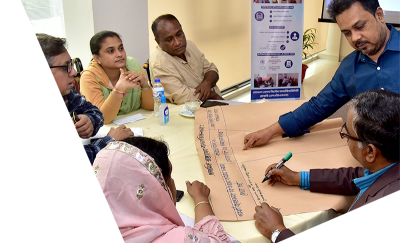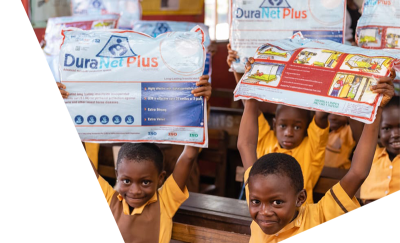Authors
Sylvester Coleman, Frank Gyamfi, Yemane Yihdego, Dereje Dengela, Richard M. Oxborough, Ben Johns, Lilly V. Siems, Bradford Lucas, Aklilu Seyoum: Abt Global; Ellie Sherrard-Smith, Churcher S. Thomas: Imperial College, London; Samuel K. Dadzie, Daniel Boakye: Noguchi Memorial Institute for Medical Research, University of Ghana; Kwasi Obiri-Danso: Kwame Nkrumah University of Science and Technology, Ghana; Jon Eric Tongren, Sixte Zigirumugabe, Dominic Dery, Christen Fornadel, Kristen George, Allison Belemvire, Jenny Carlson, , Jennifer S. Armistead: U.S. President’s Malaria Initiative, U.S. Agency for International Development; and Seth R. Irish, U.S. President’s Malaria Initiative, Centers for Disease Control and Prevention
New findings from the U.S. President’s Malaria Initiative (PMI) VectorLink Project published in Scientific Reports show the potential for reducing costs of indoor residual spraying (IRS) while retaining efficacy in killing mosquitoes that spread malaria. Over two decades IRS has significantly reduced deaths and illnesses from malaria, but resistance to commonly used insecticides is increasing. Combatting resistance requires new and costly insecticides.
Faced with increasing operational costs, the Abt Global-led PMI VectorLink Project conducted a study in Ghana in collaboration with Noguchi Memorial Institute for Medical Research and Imperial College London to find innovative ways to combat malaria with reduced use of insecticide. In the experimental hut study and village-wide trial in northern Ghana, the project found that spraying the ceiling plus the top half of a hut’s walls had the equivalent effect on killing mosquitoes as spraying the ceiling and entire wall.
The model predicts that the efficacy of partial IRS would provide an estimated 40 percent reduction in malaria cases. At scale, partial IRS in northern Ghana could cut costs by 33 percent ($496,426), enabling spraying of 36,000 additional rooms. These findings suggest that partial IRS is an effective and cost-saving approach to IRS that could expand implementation of this key malaria-control intervention though a large-scale randomized control trial was needed



